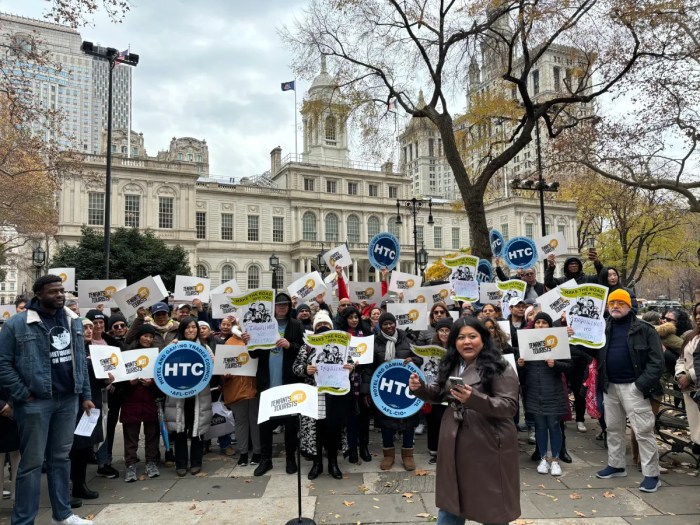By Bill Parry
The city has developed a plan of action for the Zika virus.
Less than a week after the Centers for Disease Control and Prevention announced there is enough evidence to declare Zika the cause of a birth defect called microcephaly as well as other brain abnormalities during pregnancies, Mayor Bill de Blasio announced a three-year plan to protect New Yorkers and prevent the spread of the mosquito-borne virus.
“We are doing all we can to target the mosquito that could transmit Zika here in the city, and building the capacity to respond to every possible scenario, no matter how unlikely,” de Blasio said Monday, marking the start of mosquito season. “We will spare no effort to protect pregnant New Yorkers from the devastating consequences of Zika, and we ask New Yorkers to help us by taking simple steps to get rid of standing water where mosquitoes can breed. We also ask pregnant women who may have been exposed to Zika to talk to their doctors about getting tested.”
Building on the city Health Department’s West Nile virus mosquito control program, the mayor’s plan expands mosquito surveillance and control to identify and target mosquitoes that could potentially transmit the Zika virus, creates a capacity to meet a growing need for testing pregnant New Yorkers and local mosquitoes for the virus, and launches a comprehensive campaign to disseminate prevention and testing information throughout the city. The plan will add 51 new positions, including inspectors, exterminators and lab analysts, and it will double the number of mosquito traps placed around the city.
“There are a lot of unknowns around the Zika virus, but New York City is prepared to confront all possible scenarios, including the dramatic increase in imported cases over the summer and the potential for local transmission,” Deputy Mayor for Health and Human Services Dr. Herminia Palacio said. “We already have one of the most robust mosquito-control infrastructures in place to manage West Nile virus, and we are building on that to reduce the chance of a local outbreak.”
The city’s plan focuses on clinical services, mosquito control and public awareness. Zika investment totals $21 million over a three-year period, including matching funds from New York State.
A $1.2 million citywide awareness campaign was launched Monday, reminding residents of the steps they can take to reduce and prevent mosquito bites. New Yorkers can protect themselves from mosquito bites by wearing protective clothing, using mosquito repellent and eliminating standing water in bird baths, cans, flower pots and any place where water could gather and mosquitoes could lay eggs.
“The city’s Health Department has successfully helped limit mosquito-borne diseases for more than 15 years, when the West Nile virus emerged,” Health Commissioner Dr. Mary T. Bassett said. “New Yorkers’ best defense against Zika is to avoid traveling to affected areas.”
The outbreak of Zika virus began last year in Brazil before spreading throughout South and Central America and the Caribbean. There is no vaccine, but the World Health Organization said it would take at least 18 months to start large-scale clinical trials of potential preventative shots.
Reach reporter Bill Parry by e-mail at bparr




































